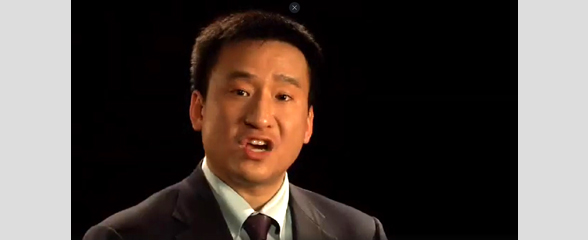Asian Americans.

2008.041.008 Oral History Interview with Taiyo Na
New York City-born musician Taiyo Na first started writing rhymes at age 13. He started performing, first as a poet and then as a musician, composer, and producer. His critically acclaimed debut album, Love is Growth (2008), showcases his multitudinous talents as an MC, singer, songwriter and producer.
Taiyo recalls his interview with poet and activist Fay Chiang at age 17, and reflects on how the music of Asian American artists and activists of the 1970s impacted his life and work. He remembers that Chiang’s stories about her experiences traveling around the country with her friends, connecting with communities, performing, and sharing their work, was exactly what he needed to hear at that age.
Taiyo had encountered Asian American music of the 1970s through friends but it was only later after Chris Iijima passed that Taiyo fully appreciated the meaningfulness and importance of the lyrics and melodies. In his own music, he thinks that there is always a line of storytelling which seeks to articulate what he is going through and he finds that others are able to connect and resonate with this. He shares how music was an escape for him and a lot of other kids growing up and how it was a way they constructed their identities. When he is creating music, he often thinks about how he could help save these kids’ lives. He points to his song, Lovely to Me, Immigrant Mother, which came from feeling ashamed of being associated with his parents because they were Asian and immigrant. He wrote the song because he did not want anyone else to feel that way. Taiyo ends by noting that there was a conscious effort in the 1970s to create music that organizes the masses but he does not consider himself an activist. He believes that care for one another is not an activist mission; rather, it is a human being’s responsibility to care about each other.

2008.041.011 Oral History Interview with Frank Wu
Frank Wu is a civil rights lawyer, professor, and award-winning author of Yellow: Race in America Beyond Black and White. His book has become an essential text in Asian American Studies. He currently teaches law at Howard University and frequently lectures on civil rights law. “When I was a kid growing up, the last thing I ever would have wanted to do was talk about or think about race, ethnicity,†he recalls in this interview.
Frank grew up in Detroit, Michigan in the 1970s. His dad was an engineer at Ford Motor Company, which relied heavily on Asian workers for research, development and product design. He briefly discusses his experience of childhood cruelty on the playgrounds, and how the especially tough times in Detroit made it one of the hardest places in America to have an Asian face during the recession. He discusses how the confrontation leading up to the brutal murder of Vincent Chin in his city and how he or his cousin could have been the victim of this racial scapegoating and violence. It made him realize how words had the powerful to do damage but also to change the world. He reflects on dominant image of Asian Americans as the model minority myth, how it means that they should be submissive, passive, and deferential, and how it was first used to contrast Asian Americans with African Americans and other people of color. In his view, Asian American communities have generally not seen the importance of vigorous participation in democracy and the importance of making a fuss. His experiences as the first Asian American law professor at Howard University, the nation leading historically black institution, made Wu realize the importance of supporting other groups and sharing a common cause. Advancing civil rights, he believes, goes beyond self-interest and involves seeing that there are principles involved that affect others.